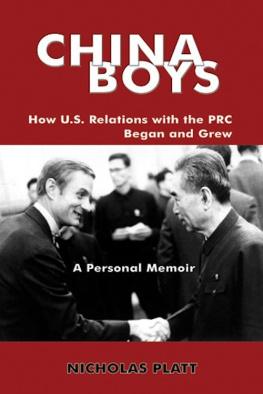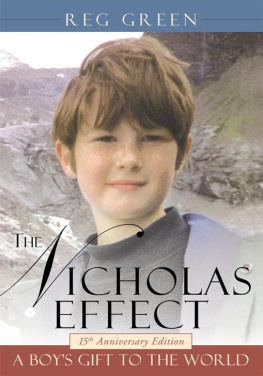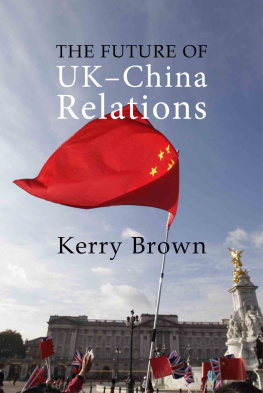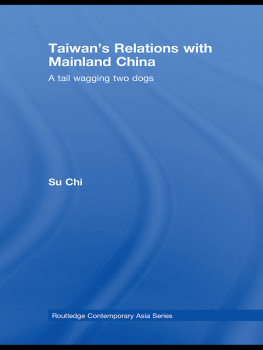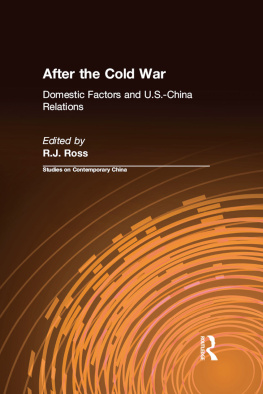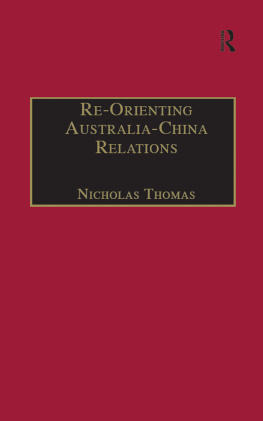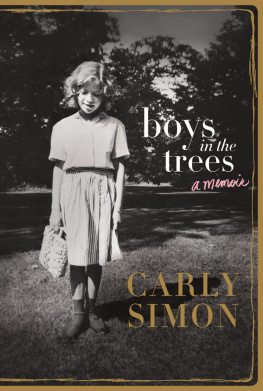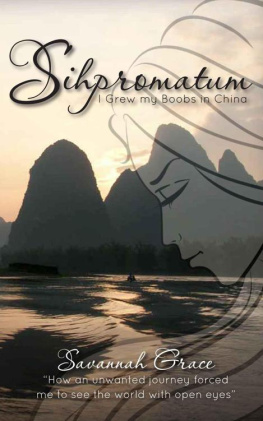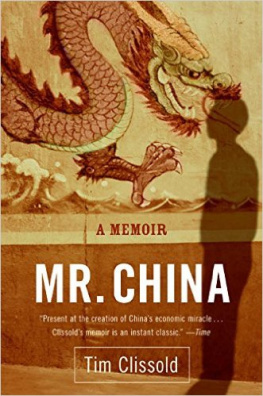Prologue
I spoke with Richard Nixon for the first and last time on February 28, 1972, the night the Shanghai Communiqu was signed.
I arrived early for the meeting at the official guesthouse. The president was sitting in a flowered silk dressing gown over an open-collar shirt and trousers, a long, fat cigar in one hand and a tall scotch and soda in the other. He looked drained but satisfied with what he had accomplished. What an extraordinary-looking man he was up close! Huge head, small body, duck feet, puffy cheeks, about three walnuts apiece, my notes indicated, and pendant jowls hanging down, the entire combination exuding authority.
Secretary of State William P. Rogers, my boss, came in. H. R. Haldemann was already there, hair close cropped, yellow legal pad and sharp pencils close to hand. Henry Kissinger was nowhere to be seen. Assistant Secretary Marshall Green and John Holdridge from Kissinger s staff arrived a bit later, and the discussion began. These men, the leading Asia experts in the U.S. government, were leaving on a tour of Asian capitals the next day to explain what Nixon had accomplished in China the past week.
The president did virtually all the talking. He shaped the individual approach our experts would take with each leader at every stop, based on his own knowledge and personal relationship with him. Tell [Philippine President] Marcos I said... Make sure [Korean President] Park understands... [Japanese Prime Minister] Sato should bear in mind that... The president had a personal message for each.
Nixon predicted a generally favorable reaction from Asias leaders. Only Taiwan had reason for disappointment, he said. However, Chiang Kai-shek could be confident that we would maintain our security commitment. Our 9,000-man force stationed in Taiwan was not important in the grand scheme of things, especially when compared with the 450,000 we had in Vietnam. Anyway, Nixon concluded, where else could he turn? The president implied from his remarks that he was also well aware of the difficulties his China visit would cause the Soviets.
Nixons performance was a tour de force, close-up confirmation of his repute as the great foreign policy president of his time. The experts were not advising him what they should say. He was telling them. As the meeting came to an end, he made a point of thanking each of us for our work. Secretary Rogers introduced me to him as one of the new China specialists in the State Department. I told Nixon that I had spent ten years preparing for this trip and was grateful to him for making it happen.
He accompanied me to the door of his suite, placing an avuncular flowered arm on my shoulder as we went. Well, he said, as we reached the door, you China boys are going to have a lot more to do from now on.
This book is the personal account of how I came to be in that room, what happened later in the pioneer days of U.S.-China relations, and my role in the growth of our relations after I left the government and joined the Asia Society. It is dedicated to the other China Boysthose professionals from State, the CIA, and the Pentagon who built the US.-China relationship link by link over the years since Richard Nixon and Henry Kissinger laid the foundation. Dramatic accounts by the president and his national security advisor document the early groping that removed the daggers drawn between China and the United States. Journalists, and now historians, daily add more critical analyses of the events that started the key international tie of the twenty-first century. It is time for the working level to weigh into enrich the grand narratives and answer questions about the evolution, the texture, and the consequences of events.
President Nixon and Henry Kissinger cut the State Department out of their balance-of-power diplomacy with the Chinese in the period leading up to the Beijing breakthrough and during the Liaison Office years that followed. The bureaucracy grumped that we had been relegated to deal with the nuts and bolts of the relationship: trade, investment, sports, culture, education, and scientific exchange. In fact, my colleagues and I were happy to be in Beijing at all, fascinated with domestic Chinese politics, life in China, and the dynamics of the first interactions between Americans and Chinese, whether Olympic athletes, orchestra maestros, members of Congress, airplane manufacturers, bankers, scientists, or inner city youths.
Over the years, our nuts and bolts fastened together the structure of U.S.-China relations, in the process creating an economic imperative that replaced the original strategic rationale after the Soviet Union collapsed in 1989. The size of the structure has become enormous. Two-way trade exceeds $400 billion, unbalanced in Chinas favor. By 2007, U.S. direct investors had pumped more than $60 billion into China, and the Chinese have begun buying into our economy. The year Nixon went to Beijing perhaps fifteen hundred Americans visited China. Now, every day, five thousand people are in the air traveling to and from China. U.S. universities have trained hundreds of thousands of Chinese students. Chinese composers write operas for U.S. companies and hit scores for American and Chinese films. Hundreds of millions of Chinese watch their stars on National Basketball League Television each week. In August 2008, millions of us tuned in to the Beijing Olympics.
These practical daily ties bind the two peoples, societies, and economies. They also give the relationship a weight and a depth that help prevent lasting damage from domestic politics in either country and from the accidents of history. These ties are the contribution not only of the prime movers, Nixon and Kissinger, but also of the early managers of the nuts and bolts issuesSecretary William P. Rogers, Ambassador David Bruce, and the Foreign Service professionals who served them. This book will describe how it all began.
It will also address other questions. What possessed a youth from New Yorks Eurocentric Upper East Side to study Chinese in the post-McCarthy era? How does one learn an Asian language? What do we know about China during the Cultural Revolution, and how did we learn it? Does the Cultural Revolution mean anything now? Were Foreign Service professionals aware in 1969 of the impact that fighting between the Chinese and the Russians was having on U.S.-China relations? What role, if any, did Secretary of State Rogers, so openly and painfully disrespected by Nixon and Kissinger, play in preparing and accompanying the president to Beijing? What were the pressures on Americans and their families living in China in the early seventies? On a personal note, did a fatal road accident near Beijing also kill a promising career? When the Peoples Liberation Army and the Pentagon sought each other out after Maos death and the Soviet invasion of Afghanistan in 1979, what issues and emotions were involved? Finally, how do we build on the structure in place to keep both the United States and China secure in the years to come?
Notes on Sources
This memoir is based on a lifetime of notes taken, diaries written, and letters home preserved by careful parents and returned after their deaths. Taking good notes was part and parcel of many of my Foreign Service assignments, and I became addicted to the practice, finding even now that I cannot listen carefully unless my hand is moving on paper. Dutifully, I destroyed or handed in notes that were truly sensitive; but I kept many others in the belief that someday I might write some history, the subject I loved the most as a child and still do now.
The result is this volume, peculiarly my own to answer for. No one else bears responsibility of any kind. I drew on a number of books to make sure I had the context right and my facts straight. Brandon Groves riveting Behind Embassy Walls helped me capture the first weeks as an A-100 Foreign Service trainee. We were classmates, and his example also helped me persevere with this memoir. John Holdridges Crossing the Divide and Marshall Greens contribution to War and Peace with China were solid reference points by former bosses who supervised my work during years in Hong Kong, Washington, and Beijing. Window on the Forbidden City: The Beijing Diaries of David Bruce, 19731974 was especially helpful in documenting Liaison Office days. The Diaries quote fully from reports that I wrote for Bruces signature, placing them in the public record and obviating the need for me to get them cleared. Naturally, I had to read the memoirs of Richard Nixon and Henry Kissinger, if only to assure that the ant tracks I traced did not wander too far off the broad paths set forth by those who had moved the world. I read Nixon and Mao: The Week That Changed the World to make sure that Margaret MacMillan had not written my book. Happily, my perspective is totally different, although I was pleased by the extent she drew on oral histories from key colleagues like Winston Lord, produced by the Association for Diplomatic Studies and Training. About Face by James Mann helped me with background on military relations during the post-Nixon years.

